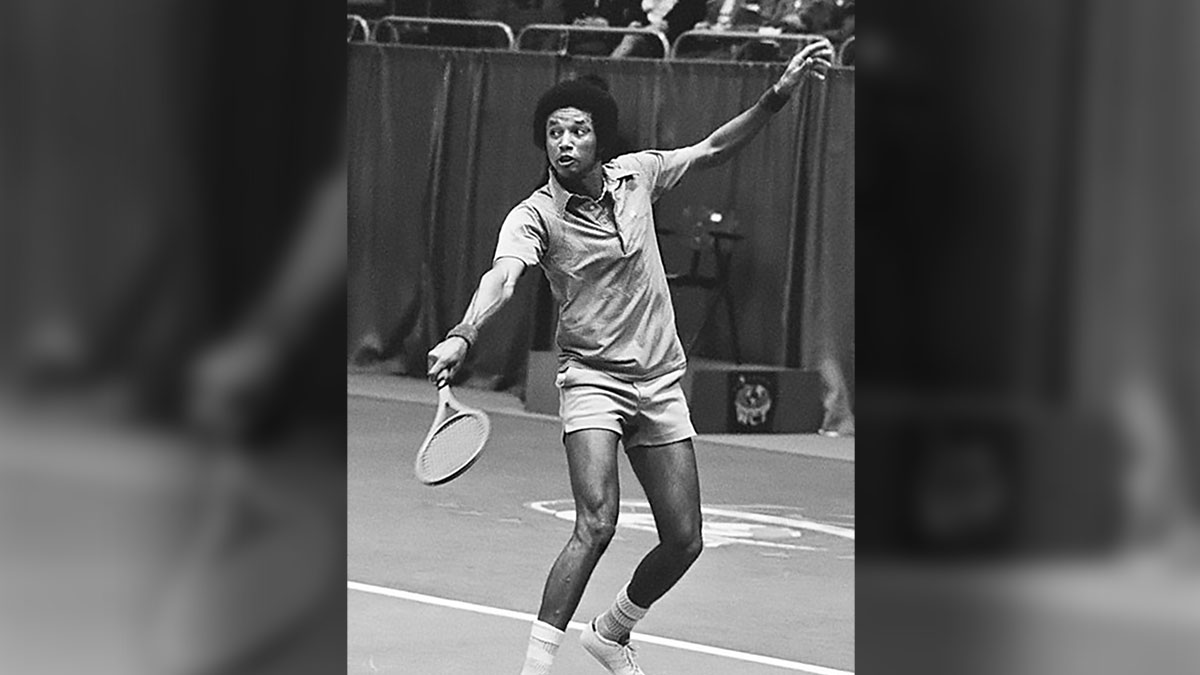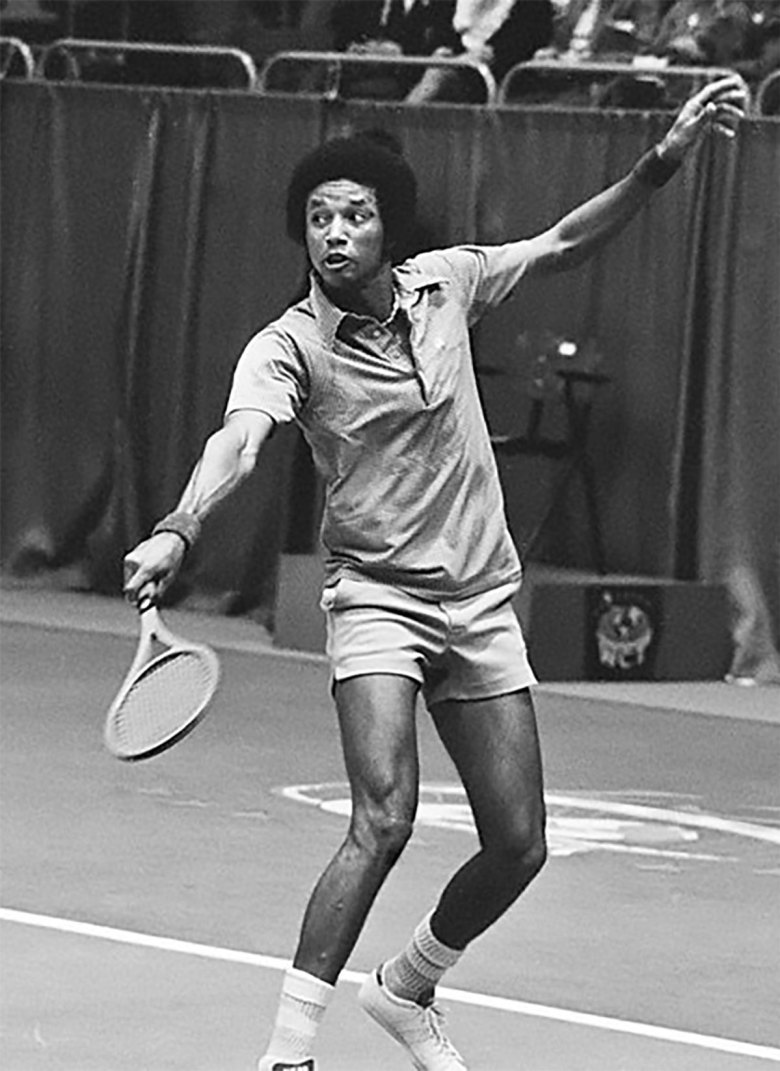Racism
1966: Arthur Ashe won U.S. Open Tennis Championship

Sept. 9, 1968

Arthur Ashe won the U.S. Open Singles Tennis Championship, becoming the first Black man to ever win a Grand Slam event. That same year, he also won the U.S. Amateur Championships, becoming the only player to ever win both events in the same year. He bolted to the top of the tennis world, also winning Wimbledon and the Australian Open.
Born in Richmond, Virginia, Ashe began playing tennis at 7 and quickly encountered racism that prevented him from competing against white players and even from using the city’s indoor courts. He and his family moved to St. Louis, where he learned the serve and volley game that made him famous. He also learned how to keep cool under pressure.
In 1963, he became the first Black player to play for the U.S. Davis Cup team. When the team won, Ashe was unable to keep the winnings because he was still classified as an amateur.
Considered one of the greatest tennis players of all time, he retired in 1980, not long after suffering a heart attack, but continued to remain active, helping captain the Davis Cup teams to victory. He actively supported civil rights, too, joining a delegation that visited South Africa and writing a three-volume history of Black athletes, “A Hard Road to Glory,” which he later learned that Nelson Mandela had read in prison.
When Ashe underwent a second heart bypass surgery in 1983, he contracted HIV from a blood transfusion. He later spoke out publicly about the disease and worked to raise awareness. “I do not like being the personification of a problem, much less a problem involving a killer disease, but I know I must seize these opportunities to spread the word,” he wrote in his memoir.
Not long after finishing “Days of Grace,” he died in 1993. That same year, he posthumously received the Presidential Medal of Freedom, and the U.S. Open later named its new stadium after him. In 1996, the city of Richmond dedicated a statue of him on Monument Avenue, which previously commemorated only Confederate icons.
“True heroism is remarkably sober, very undramatic,” Ashe wrote. “It is not the urge to surpass all others at whatever cost, but the urge to serve others at whatever cost.”
Today, the U.S. Open stadium bears Ashe’s name.
Read the full article here












You must be logged in to post a comment Login